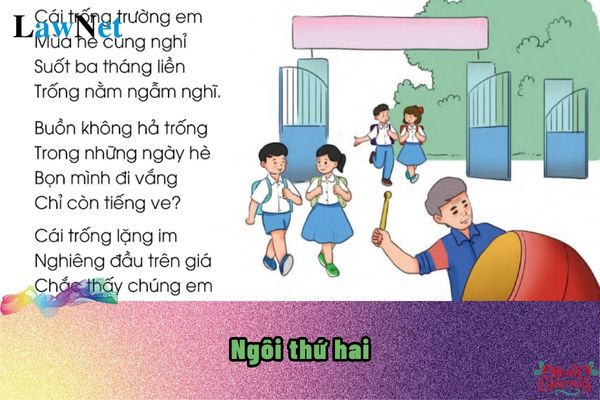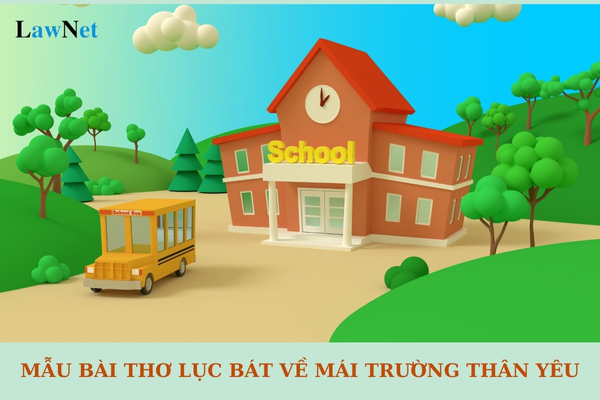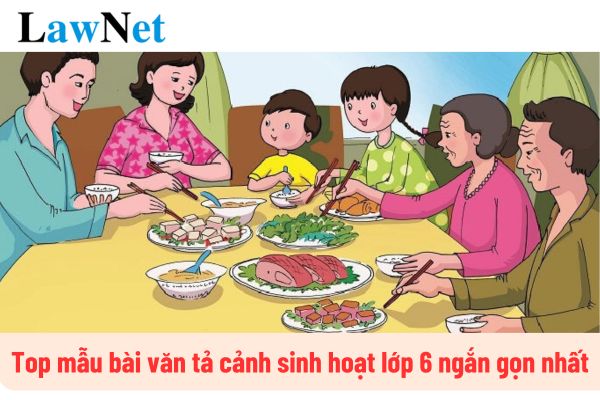What are sample paragraphs expressing thoughts on human affection for homeland in Vietnam? How many students are there in each class of lower secondary schools in Vietnam?
What are sample paragraphs expressing thoughts on human affection for homeland in Vietnam?
Expressing thoughts about human sentiments toward their hometown is one of the topics that students will learn in the Grade 6 Literature course.
Students can refer to following sample paragraphs expressing thoughts on human affection for homeland
|
Sample paragraphs expressing thoughts on human affection for homeland Template 1: Recalling Childhood My hometown is where I was born and raised, filled with beautiful childhood memories that are unforgettable. The hearty laughter of us children echoed throughout the small village roads, and the simple yet interesting folk games connected us. The scent of ripe rice, the cool autumn wind, all are sweet memories. No matter where I go, I always remember the small house with its bright red tile roof and the lush garden behind it. My hometown nourishes my soul and serves as an endless source of inspiration for my creativity. Template 2: Hometown as Origin Quê hương luôn hiện hữu trong trái tim tôi như một bài ca ru ngọt ngào. Đó là hình ảnh những cánh đồng bát ngát, dòng sông hiền hòa, những ngôi nhà cổ kính... Tất cả đều gợi lên trong tôi những cảm xúc ấm áp, thân thuộc. Dù có đi xa, tôi vẫn luôn hướng về quê hương với một nỗi nhớ da diết. Quê hương là nơi tôi tìm về mỗi khi mệt mỏi, là chốn bình yên để tôi thư giãn và lấy lại năng lượng. Template 3: Hometown in the Heart Quê hương luôn hiện hữu trong trái tim tôi như một bài ca ru ngọt ngào. Đó là hình ảnh những cánh đồng bát ngát, dòng sông hiền hòa, những ngôi nhà cổ kính... Tất cả đều gợi lên trong tôi những cảm xúc ấm áp, thân thuộc. Dù có đi xa, tôi vẫn luôn hướng về quê hương với một nỗi nhớ da diết. Quê hương là nơi tôi tìm về mỗi khi mệt mỏi, là chốn bình yên để tôi thư giãn và lấy lại năng lượng. Template 4: Hometown and Responsibility Yêu quê hương không chỉ là cảm xúc mà còn là trách nhiệm của mỗi người dân. Chúng ta cần phải có những hành động cụ thể để bảo vệ và phát triển quê hương. Đó có thể là việc tham gia các hoạt động bảo vệ môi trường, giữ gìn trật tự an toàn xã hội, hay đơn giản chỉ là việc tuyên truyền những giá trị tốt đẹp của quê hương đến với mọi người. Mỗi người một ít, chúng ta sẽ góp phần xây dựng quê hương ngày càng giàu đẹp. Template 5: Hometown is Forever Quê hương là một phần không thể thiếu trong cuộc đời của mỗi người. Đó là nơi chúng ta được sinh ra, lớn lên và trưởng thành. Dù thời gian có trôi qua, xã hội có phát triển, tình yêu quê hương vẫn luôn cháy bỏng trong trái tim mỗi người. Quê hương là điểm tựa tinh thần vững chắc, là nơi chúng ta tìm về khi cuộc sống có những biến động. Tình yêu quê hương là một giá trị vĩnh cửu, không bao giờ phai nhạt. |
Note: Information is for reference only./.

What are sample paragraphs expressing thoughts on human affection for homeland in Vietnam? How many students are there in each class of lower secondary schools in Vietnam? (Image from Internet)
How many students are there in each class of lower secondary schools in Vietnam
According to Clause 3 Article 16 of the Regulations on lower secondary schools, upper secondary schools, and schools with multiple educational levels issued along with Circular 32/2020/TT-BGDDT, class regulations are as follows:
Class Regulation
...
- The Chairman of the Provincial People's Committee specifies the number of students in each class towards reducing the student-to-class ratio; ensuring that each class at the lower and upper secondary levels has no more than 45 students.
...
Thus, each class of lower secondary schools has no more than 45 students.
Is it mandatory for grade 7 students to attend extra classes?
According to Article 3 of the Regulation on extra teaching and learning issued with Circular 17/2012/TT-BGDDT, the principles of extra teaching and learning are as follows:
Principles of Extra Teaching and Learning
- Extra teaching and learning activities must contribute to reinforcing and enhancing students’ knowledge, skills, and character education; suited to students’ psychological characteristics and not exceed their learning capacity.
- No reduction of regular training program content for extra classes; not to teach extra before content from the regular program is covered.
- Students taking additional classes must have the need, voluntarily attend, and have family consent; no form of coercion is allowed for families or students to take extra classes.
- Do not organize extra classes following regular school classes; students in the same extra class must have equivalent academic abilities; organizing students into extra classes must be based on student academic ability.
- Organizations and individuals conducting extra teaching and learning activities must be responsible for the registered content and obtaining permission for extra teaching and learning activities.
Additionally, according to Article 5 of the Regulation on extra teaching and learning issued with Circular 17/2012/TT-BGDDT:
Organization of Extra Teaching and Learning in Schools
- Students wishing to take additional classes must submit an application to the school; parents or guardians (hereafter referred to as parents) of students applying for extra classes must directly sign, record commitments with the school on extra teaching and learning on the application, and be responsible for fulfilling the commitment.
- The school principal receives the students’ applications for extra classes, organizes students into groups based on academic ability, assigns subject teachers, and organizes extra classes according to students’ academic groups.
- Teachers wishing to teach extra classes must submit a registration application; in the application, teachers must commit to completing all duties according to general regulations and other duties assigned by the school while strictly complying with regulations on extra teaching and learning in school.
- The school principal reviews the list of teachers for extra classes, assigns teachers, and arranges timetables for extra teaching suitable for students' academic ability.
Thus, the extra classes for students entering grade 6 are based on voluntary participation and family consent. No form of coercion is allowed for families or students to take extra classes.
Therefore, it is not mandatory for grade 6 studentss to attend extra classes.










- Vietnam: What is the sample outline of an essay on the analysis of expressions of national spirit in the Poem "Việt Bắc" for 12th-grade students? What patriotic qualities are required for 12th-grade students?
- Vietnam: What are your thoughts on the Poem "Tiếng ru" by To Huu? How many lessons are there in the 12th-grade Literature curriculum per year?
- What are the sample essays describing your grandfather for 5th-grade students in Vietnam? What are the assessment criteria for 5th-grade students in 2024?
- Vietnam: What are the sample social argumentative essays on social media etiquette for 10th-grade students? What Vietnamese knowledge do 10th-grade students learn?
- Vietnam: Why is the French Bourgeois Revolution considered the most thorough one? What learning outcomes are required for 11th-grade students after studying the bourgeois revolution?
- Vietnam: What is the atmosphere? What is the grade at which students are required to master the knowledge of the atmosphere in the History and Geography curriculum?
- Vietnam: Why does the phenomenon of day and night alternation occur on Earth? What is the grade at which students learn about the phenomenon of day and night alternation on Earth?
- What is the newest report template on distance education at the higher education level in Vietnam?
- Vietnam: What are the shortest sample expositions on Ba Den Mountain for 9th-grade students? What learning outcomes are required for the writing process in the 9th-grade Literature curriculum?
- In Vietnam, what does local time mean? What is the grade at which local time is taught in the History and Geography curriculum?

